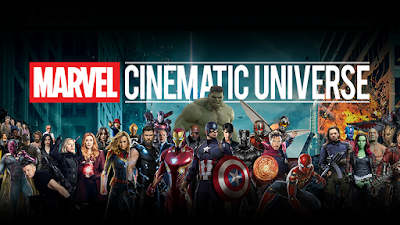Why "No-Platforming" Films/Shows IS NOT The Answer To Our Racially Problematic Past
It’s an understatement to say tensions have been running
high these past few months, and that’s racial tension to be precise. The death of
George Floyd sparked numerous protests and debate worldwide around (initially)
police brutality, and then wider issues around racial prejudice and injustice.
Numerous other critical issues around systematic racism, privilege, and more
have been bought to our attention, with even the Coronavirus Pandemic
highlighting major flaws.
So much debate has been created that now the film and wider
entertainment industries are having to self-reflect and pave ways forward in
making tomorrow’s world more inclusive for all. However the ways in which the
industry is tackling these important issues are being called into question, and
that’s what I want to discuss.
One way in which companies are reacting is by removing “controversial”
content from streaming platforms. HBO Max removed the classic film “Gone with
the Wind” (albeit they put it back on), whilst Netflix and BritBox removed BBC
shows Little Britain and Come Fly with Me. All three have been called out for
their depiction of minority groups (and rightfully so), but removing this
content calls to a bigger question of accepting historical wrongs, whilst still
appreciating the art that was produced in these times. I’ve never properly
watched Little Britain, but I know A LOT of people love the show. So what is
the benefit of removing such content? Is the humour distasteful in today’s
world? Most probably yes! But instead of finding ways of stopping people
enjoying shows they’ve grown to adore, surely a better solution would be to
educate those same people as to why the content is insensitive.
When it comes to racism, education is the most powerful tool
we can use to make the world better for all. Yes our TV shows, films and wider
media play a part in shaping our views, and this progressive thinking should be
the standard to which content is created today. But not giving shows like
Little Britain or Come Fly With Me a platform to be seen deprives fans of their
favourite entertainment.
So much of our beloved films and TV shows of the past
generations feature both blatant and subtle portrayals and messages which are
racially insensitive, so where do we draw the line? Take Disney’s Peter Pan for
example – it’s my all-time favourite Disney film and I love it wholly. The nostalgia,
fun, fear, and adventure I feel when watching it even as an adult is amazing,
but even I admit that its depiction of Native Americans is undoubtedly bad, and
this should be known and understood. But as selfish as this may be, removing
the film is something I would hate to see, as it represents such a big part of
my childhood. I believe that as intelligent beings, we can both appreciate the
historical context, understand the racial injustices Native Americans have
faced, and still enjoy the film for what it is. Support for equality and the
removal of culturally significant content are not conflicting viewpoints,
rather a more intelligent and logical stance.
We can’t hide from our past, and that includes the shows and
films we grew up loving. I think the main thing Hollywood can do is acknowledge
that these films were made in racially insensitive times, and ensure that
diversity within the industry remains a priority. With the influence the
industry wields, film and TV have crucial roles to play in promoting an equal
and fair society for all, and this can be achieved by funding stories from a
diverse set of film makers, and making films which portray history (even its
darkest parts) in a fair and realistic way.
I still love Peter Pan. You can still love Little Britain. Let’s just take time to understand (and appreciate) why some cannot.




Comments
Post a Comment